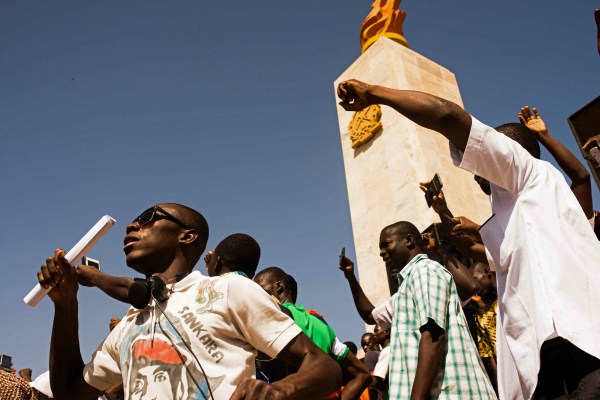On the morning of Oct. 30, 2014, throngs of protesters overwhelmed security forces in Burkina Faso’s capital, Ouagadougou, and burned the National Assembly building, physically preventing deputies from voting to further extend President Blaise Compaore’s tenure. That “popular insurrection,” as almost everyone in Burkina Faso now calls it, continued into the next day, driving the authoritarian president out of the country after 27 years in power.
Just over five months later, on April 7, under an interim government and with the assembly building still out of use, a new set of parliamentary deputies, including many former protesters, met in temporary facilities to amend the electoral code that will govern presidential and legislative elections this October. Most clauses will make that contest much more democratic than any held under Compaore. But some have less to do with fairness than with uprooting the remaining vestiges of the old regime. According to the new code, no one can run who actively supported Compaore’s efforts last year to subvert the constitution’s presidential term limits, thus effectively barring most members of the previous government, legislature and leadership bodies of the parties allied with him.
As riot police easily dispersed small demonstrations by Compaore supporters outside the temporary assembly, many of the country’s newly assertive activist circles welcomed the electoral code. Abdoul Karim Sango, a member of the electoral commission, praised the actions of the “deputies of the insurrection.”

